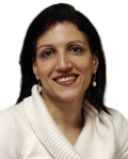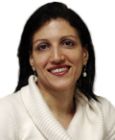A miracle has happened. Not a global one, like ending hunger or bringing world peace. Not one that will be announced on the news, just a local one, leaving two people very happy. So local is the miracle, I can give you the exact address: Lincoln Street, Jerusalem, Israel. This is where my mother lives, the wonderful old lady with the eye problems which are all she ever talks about. But miracles do happen, and this one started when my mom's best friend, whose Hebrew name is the equivalent of Joy, joined a retirement community. A few weeks later, my mother, who previously would not hear of it, signed up for what I called ‘summer camp' - she spent five trial days at that retirement community, deciding whether she wants to join them soon. And boy was she the happy camper. She and Joy, and a few other friends (or ‘girls' as my mother calls them) shared meals, watched a documentary about a certain president, went for an evening stroll, and took a belly dancing class together (it is, after all, the Middle East). Instead of recounting me the hassles of applying numerous eye drops daily, my mother was full of gossipy tales. Such as, when in the elevator, after the documentary, she made the mistake of addressing the couple going up with her, saying "this president sure liked women." The woman in the elevator replied by turning to her husband, saying " you also used to like women." Ouch, The husband did not like it. "Will you stop it already?" he asked his wife. Mercifully they arrived at their floor, and he spat out a "good night, madam," at my mom, before doggedly following his embittered wife. A juicy tale, from my mother?!
Who are you, I want to ask this lady, not exactly younger, but definitely less old, brimming with excitement and little adventures. Who are you, and what have you done with my mother, who knows every ophthalmologist in town, and has lately been so subdued? Except I already know the answer.
Paul Gaist, PhD, MPH, an adjunct professor at the Johns Hopkins Bloomberg School of Public Health, doesn't know my mom, but he too knows the answer. He is the editor of the book "Igniting the Power of Community: The Role of CBOs and NGOs in Global Public Health", which was just released by came out in Springer Publishing House (NY, NY). And the answer is that communities are a potent source of health and strength, worldwide. This new book demonstrates how in a time of unprecedented challenge-economic crises, social inequalities, environmental stressors, emerging health threats-NGOs and community based organizations are driving change, often being the first to call attention to the issues and increasingly forging significant and sustainable solutions."
With my mom, the issue was loneliness, lack of a sense of belonging, and, for the better part of the day, having no one to talk to. Community, being surrounded with people her age, who share her interests, and have the time to partake together in numerous activities tailored to their needs.
But communities go beyond just being there for you. For example, civil society organizations (CSOs) that make up the environmental health movement provide insights, lessons, and resources that are useful to practitioners and policy makers in collaborating with environmental CSOs to achieve health goals.
Other moving examples include faith-based organizations, such as the Mennonite Central Committee, aiming to promote relief, development, and peace and prioritizing HIV/AIDS and food security projects. These are people uniting to fight the good fight, for their own sake, and for the sake of other, weaker communities.
The truly cool thing, which is seldom mentioned, is that the very act of giving, gives back, in that it makes the giving person, not just the receiver, happier. Readers of Gaist's book may know that, as does my mom. She's been so concerned for Joy, who has recently been upset, that she forgets to complain about her eye drops. Community, you see, goes full circle, leaving everyone not just connected, but miraculously stronger, having been imbued with the power of more than one.
For more on Dr. Gaist's book, "Igniting the Power of Community: The Role of CBOs and NGOs in Global Public Health", see: http://www.springer.com/public+health/book/978-0-387-98156-7


